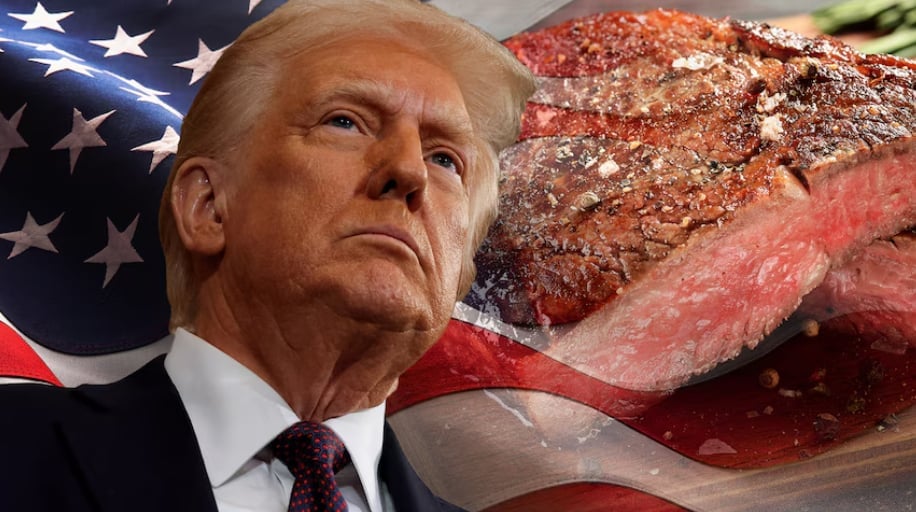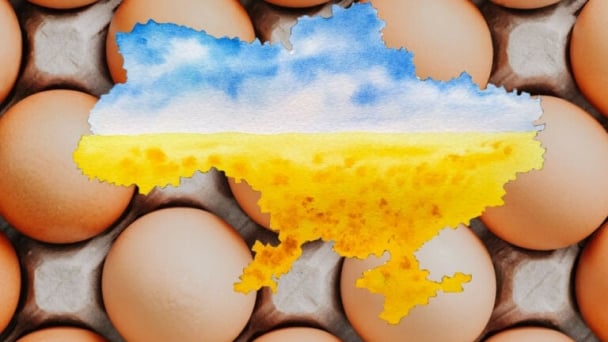May 20, 2025 | 11:42 GMT +7
May 20, 2025 | 11:42 GMT +7
Hotline: 0913.378.918
May 20, 2025 | 11:42 GMT +7
Hotline: 0913.378.918

Donald Trump claims Australia has banned US beef, but that is not true. Graphic: ABC Landline.
"Australia bans — and they're wonderful people, and wonderful everything — but they ban American beef," he said.
"Yet we imported $[US]3 billion of Australian beef from them just last year alone. They won't take any of our beef."
But is the US president correct?
Global Agritrends global meat trader and analyst Simon Quilty remembers trading imported US beef in the 1990s.
"It was a really small window to bring that beef in, normally around August, September when there was a price fall in America," he said.
"At the time we had topsides coming in and sold to a restaurant chain called Sizzler.
Australia placed restrictions on importing fresh US beef in 2003, after the US experienced an outbreak of mad cow disease.
According to Australian Bureau of Statistics (ABS), Australia has not imported beef from the United States since 2005.
The Australian Department of Agriculture has confirmed there is no ban on importing United States beef.
"Import conditions into Australia are currently available for beef products sourced from cattle born, raised and slaughtered in the United States (US)," a department statement read.
"However, the US has not commenced trade under these terms and has requested to expand its access to include beef products sourced from cattle from Mexico and Canada and legally imported into the US for export to Australia.
"Australia's assessment for this additional US request is progressing."
Cattle Australia chief executive Chris Parker said Mr Trump's logic for the new tariff on Australian beef was flawed.
He said it failed to recognise that the US had had access to the Australian market since 2019, provided it could demonstrate its beef came from cattle born, raised and slaughtered in the US.
Other countries allowed to export beef to Australia are Japan and New Zealand.
Mr Quilty said US beef was perhaps facing a "quasi-ban" from accessing the Australian market.
"This is all related to the requirements for biosecurity and in particular traceability of cattle," he said.
"The terminology at the moment is US beef is allowed here [Australia], but the concern is Canadian and Mexican cattle that go into America, are fed and slaughtered there — are those cattle traceable?
"That question has been on the table to America for several years and up until now, with the Trump administration stepping in, that question had not been addressed.
"But there's now an urgency and I think this will be addressed very quickly."
Mr Quilty said cattle traceability systems had improved across North America, but he doubted it would be viable to export US beef to Australia.
In 2024, Australia produced more beef than ever before, turning off 2.57 million tonnes of beef, of which a record 1.34 million tonnes was exported around the world.
ABCNews

(VAN) Oliyar, a prominent Ukrainian oil and fat manufacturer, has revealed plans to build a farm for 2.3 million laying hens in the Lviv region. The additional production quantities promise to change the competitive landscape of the egg market of the Eastern Europe region.

(VAN) On May 15, Ministry of Agriculture and Environment of Vietnam hosted the 'Connecting Vietnam - Germany agricultural, forestry and fishery trade' seminar in Berlin, Germany.

(VAN) In the face of counterfeit and imitation products, Khanh Hoa Salanganes Nest Company hopes for the prompt completion of the legal framework, strict enforcement against violations, and protection of the bird’s nest brand.

(VAN) Japan's efforts to lower the price of rice through the release of its stockpile may finally be making some progress, albeit at a snail's pace.

(VAN) U.S. tariffs are not only a 'shock', but also an opportunity for Vietnamese businesses to renew their mindset toward comprehensive development.

(VAN) As Bac Giang lychee enters the harvest season, Minister Do Duc Duy expects that the fruit will contribute greatly to agricultural exports due to standardized production and deep processing.

(VAN) Consumers have shown a preference for free-range eggs, but those farming systems are more vulnerable to biosecurity risks like bird flu.